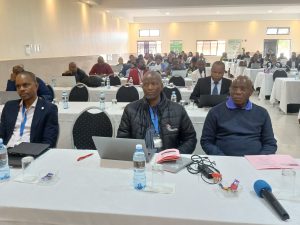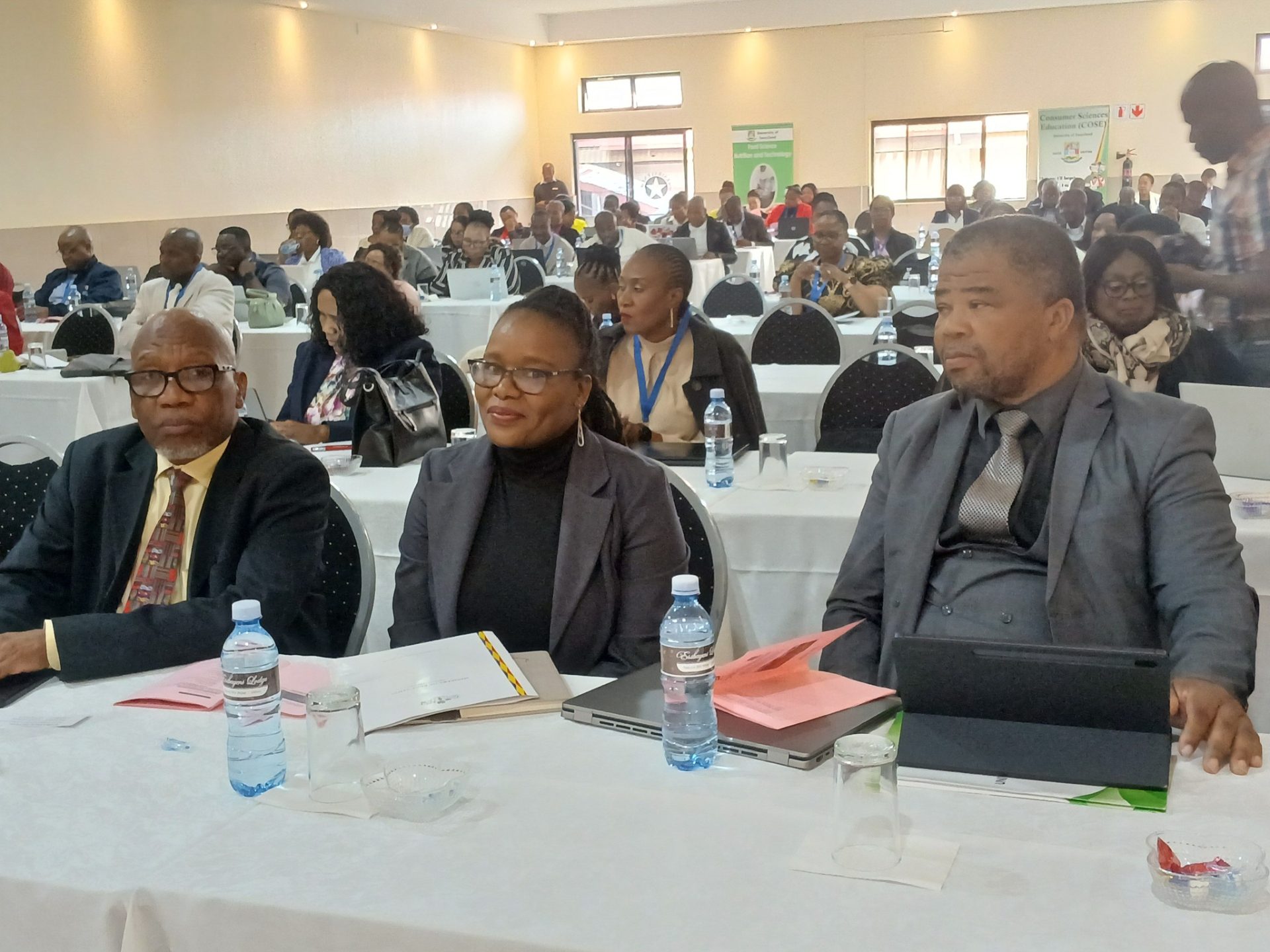by Ncaba Ntshakala
The Minister of Education and Training, Owen Mngometulu, has lauded the Southern African Society for Education (SASE) for its significant role in enhancing research capacity and advancing education across the region. Speaking at the 48th SASE Conference, held in Matsapha.
Nxumalo speaking through his representative, the Director of Education Dr. Tholakele Mngometulu emphasized the Society’s commitment to mentorship, networking, and providing critical resources, particularly for young and historically disadvantaged researchers.
During the Minister’s address, Mngometulu praised SASE as an “epitome of excellence” within the Southern African Development Community (SADC) region.
She noted that the Society’s efforts have been instrumental in empowering future educational leaders to tackle the complex challenges facing Southern Africa.
“Let us applaud the Society for its continued efforts to empower the next generation of educational leaders,” said Mngometulu.
RELATED: Eswatini on par with EU countries on free education and healthcare
The Director of Education remarked on the historical importance of the conference, where he highlighted it as an example to the enduring spirit of collaboration and knowledge exchange among researchers, educators, and policymakers.
She called the gathering an “exclusive platform” where these key stakeholders could come together to share their insights and discuss the crucial role of education in shaping the future of the region.
In her address, Mngometulu also acknowledged the Vice Chancellor and SASE’s milestone 53rd anniversary, noting that from its humble beginnings as the South African Pedagogic Society, the organization has grown to encompass institutions across Southern Africa.
Over the years, SASE has evolved into a leading platform for educational discourse, promoting dialogue, creativity, collaboration, innovation, and critical thinking.
Its inclusive approach has ensured that voices from diverse backgrounds are represented, making it a truly representative space for academic engagement.
Mngometulu also reflected on the theme of this year’s conference, “Embracing New Technologies and Innovative Educational Research to Foster Sustainable Development in Southern Africa.
” She noted that this theme aligns with regional and global goals, particularly Sustainable Development Goal 4 (Quality Education) and the African Union’s Agenda 2063.
Eswatini, alongside other Southern African countries, has prioritized initiatives such as enhancing digital infrastructure, teacher development, and the integration of technology in classrooms.
These efforts are seen as essential to equipping education systems to meet the demands of the 21st century and prepare learners for the Fourth Industrial Revolution.

Mngometulu stressed that adopting new technologies in education is not a passing trend, but a necessity.
“By leveraging ICT, our education systems can enhance learning outcomes, equip learners with core skills, promote inclusivity, and bridge the digital divide,” she said.
She cited the Eswatini government’s recent efforts to expand access to ICT in schools, particularly in rural areas.
A recent example was the opening of a school in rural Etjendlovu in the Shiselweni region, which features state-of-the-art laboratories dedicated to practical subjects, including ICT, agriculture, and design and technology.
The Director took the opportunity to commend SASE’s dedication to mentorship, knowledge sharing, and capacity building, particularly for early-career researchers and students.
She urged senior academics to continue nurturing young researchers through collaboration and presentation opportunities, much like the Society’s founders who worked tirelessly to transform education during apartheid-era South Africa.
RELATED: FPE payments to be disbursed next week, says Ministry of Education
Mngometulu emphasized the vital role that innovative educational research plays in achieving sustainable development.
She explained that by exploring new pedagogies, methodologies, and technologies, the region can address complex challenges, ranging from economic empowerment to social inequalities.
She urged education systems to adapt to changing environments by embracing sustainable and contextually relevant approaches.


